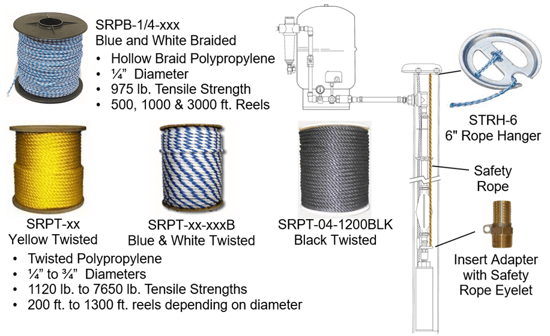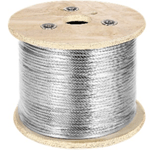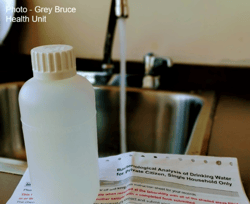Does polypropylene safety rope have anti-bacteria properties?
Does polypropylene safety rope have anti-bacteria properties?
Polypropylene safety rope has been used in the water well industry for as long as I can remember, we have never received any reports of bacteria growth issues with regards to using polypropylene rope. From time to time, we will get asked if the rope could get bacterial build up since it is submersed and exposed to air over and over again as the static water level changes during the pumping cycle.

Bacterial growth on polypropylene rope is not expected to be any different than what you would see on the other well components. This includes the well casing, whether it be steel or PVC, pump cable, drop pipe (aka riser pipe) in carbon steel, stainless steel or polyethylene (PE), drop pipe couplings, and cable guards. These components all experience the same exposure to water and air as the water level changes.
The main reason polypropylene rope is commonly used in this application is because it is rot-proof, making it ideal for submersible pump safety rope. It is resistant to mildew, mold, acids, and alkalis. Polypropylene will not soak up the moisture and decay due to bacterial growth and polypropylene is completely immune to the effects of water. Polypropylene rope is commonly used for many outdoor applications where it is subjected to extreme weather conditions or in severely damp environments. The rope will maintain its strength and integrity for a very long time.
The rope is not treated with any biocides, which could possibly cause other health effects. Even though untreated, polypropylene rope displays inherent antibacterial efficacy. Although, it cannot be marketed as having antibacterial properties.
What is biocidal effect? - Biocide is a chemical substance or microorganism intended to destroy, deter, render harmless, or exert a controlling effect on any harmful organism by chemical or biological means.
 Installers sometimes opt to use stainless steel safety cable rather than polypropylene to gain higher tensile strength and peace of mind in deep pump settings. However, one should expect that bacteria will grow on the surface of stainless steel in the same way it does on any other materials.
Installers sometimes opt to use stainless steel safety cable rather than polypropylene to gain higher tensile strength and peace of mind in deep pump settings. However, one should expect that bacteria will grow on the surface of stainless steel in the same way it does on any other materials.
IMPORTANT:
 It is recommended that homeowners test their well water at least once a year for both nitrates and bacteria including E. coli and total coliforms. If these tests turn up positive for bacteria, chlorinating the well may be a way to resolve the problem. Contact your professional & licensed well contractor.
It is recommended that homeowners test their well water at least once a year for both nitrates and bacteria including E. coli and total coliforms. If these tests turn up positive for bacteria, chlorinating the well may be a way to resolve the problem. Contact your professional & licensed well contractor.
For more helpful information about water quality and water testing visit:
https://www.epa.gov/sites/default/files/2015-11/documents/2005_09_14_faq_fs_homewatertesting.pdf
